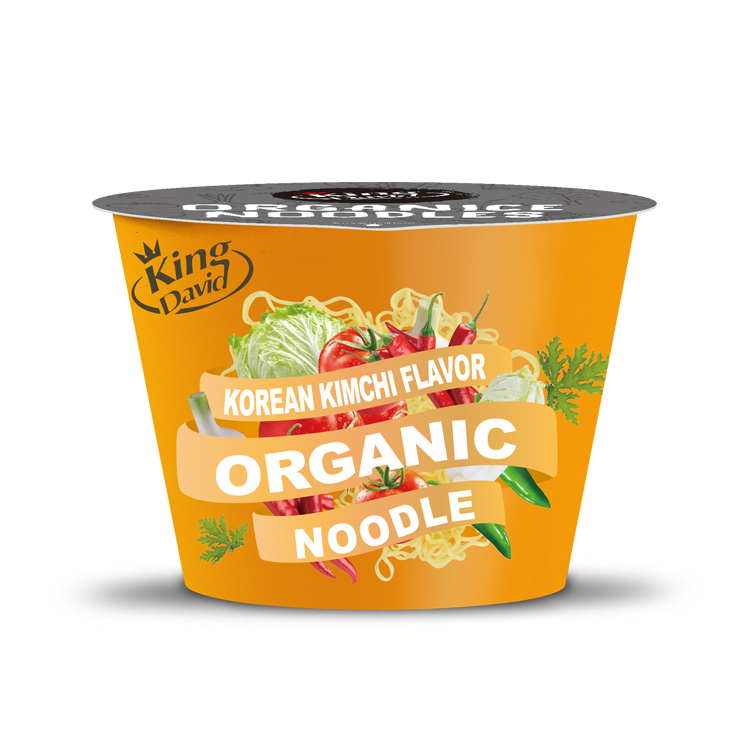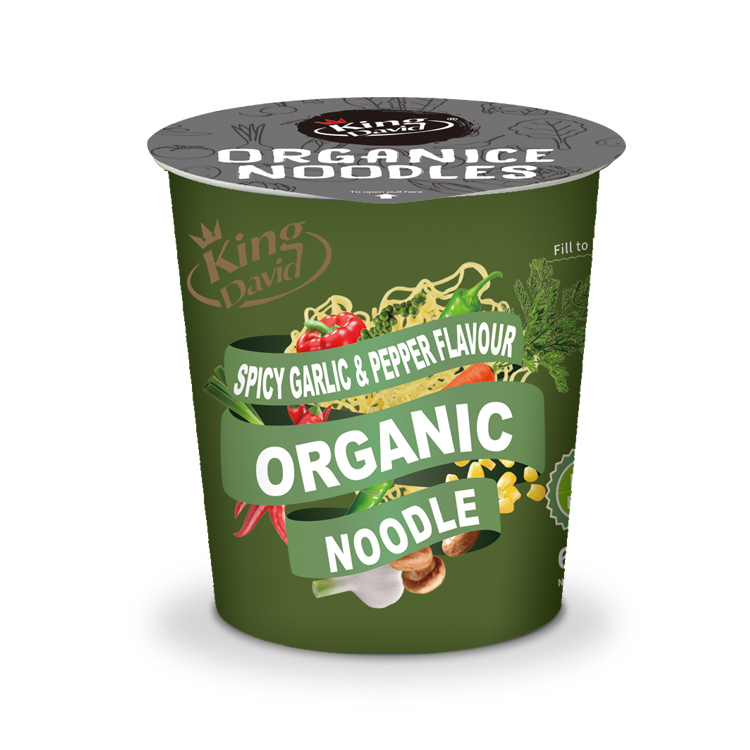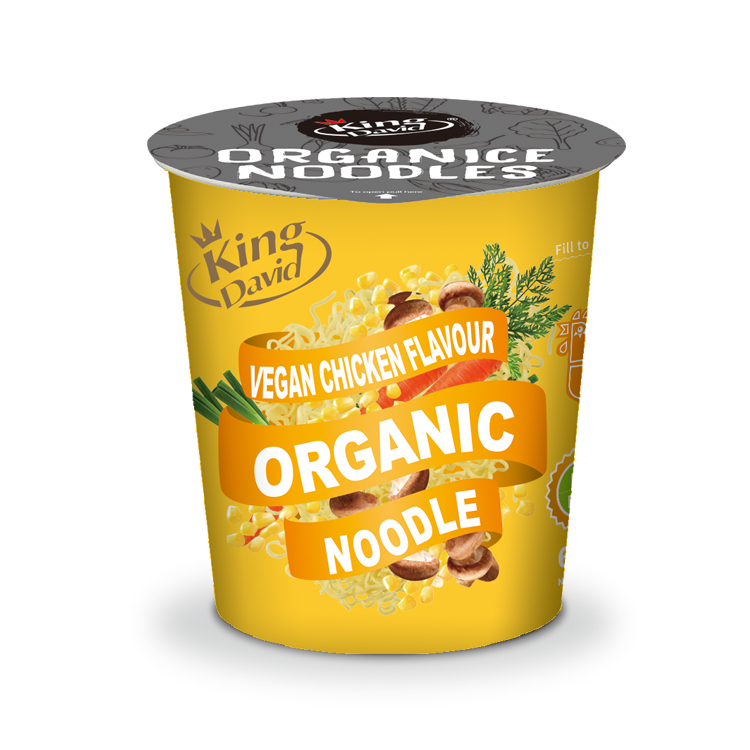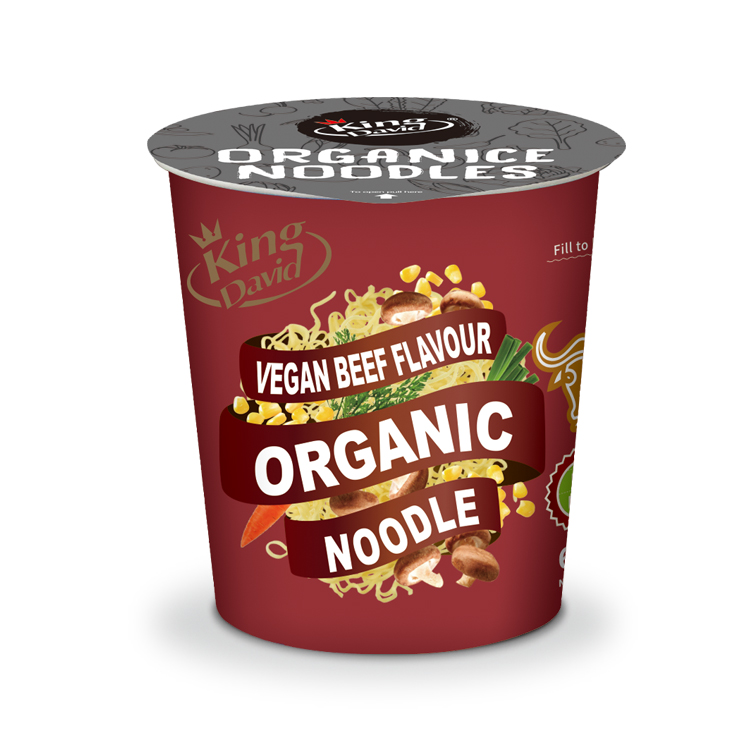In today's society, more consumers are becoming aware of their dietary choices, particularly regarding health and sustainability. Organic noodles have emerged as a nutritious and versatile food option that is gaining popularity. This article will delve deeper into the health benefits of organic noodles, their environmental impact, and how to incorporate them into a balanced diet.
Understanding Organic Noodles
Organic noodles are made from ingredients that are produced through organic farming practices, meaning they are free from synthetic pesticides, fertilizers, and genetically modified organisms (GMOs). Organic agriculture adheres to strict standards aimed at protecting soil health and ecosystems.
Production Standards for Organic Noodles
-
Use of Organic Ingredients: The grains used (such as wheat or rice) must be certified organic.
-
No Artificial Additives: Organic noodles do not contain synthetic preservatives, colors, or flavors.
-
Sustainable Farming Practices: The production process emphasizes environmentally friendly and sustainable practices to promote soil health and biodiversity.
Health Benefits of Organic Noodles
Higher Nutritional Content
Research indicates that organic foods generally contain higher levels of nutrients. Organic noodles may be rich in:
-
Vitamins: Such as B vitamins, which are essential for energy metabolism.
-
Minerals: Including magnesium and iron, which are vital for various bodily functions.
-
Antioxidants: Organic foods often have higher levels of antioxidants that help combat chronic diseases.
Absence of Harmful Chemicals
Choosing organic noodles helps reduce exposure to pesticide and fertilizer residues, which is crucial for long-term health.
Better Digestibility
Many consumers find that organic noodles are easier to digest than conventional varieties. This can be attributed to their cleaner ingredient profile and the absence of chemical residues.
Low in Added Sugars and Preservatives
Organic noodles typically do not contain added sugars or artificial preservatives, helping maintain stable blood sugar levels.
Environmental Benefits of Organic Noodles
The advantages of organic noodles extend beyond personal health; they also positively impact environmental sustainability.
Reduced Chemical Runoff
Organic farming practices minimize the use of synthetic chemicals, which helps reduce runoff into waterways. This is vital for maintaining clean water sources and protecting aquatic ecosystems.
Improved Soil Health
Organic agriculture emphasizes sustainable practices such as crop rotation and composting, which enhance soil fertility. Healthy soil is essential for long-term agricultural productivity and environmental health.
Biodiversity Conservation
By avoiding synthetic chemicals and promoting natural farming methods, organic farms support greater biodiversity. This includes a variety of plant species and wildlife, fostering a balanced ecosystem.
Choosing the Right Organic Noodles
With an increasing variety of organic noodles available on the market, selecting the right product can be overwhelming. Here are some tips to help you make an informed choice:
Check for Certification
Always look for a certified organic label on packaging. This ensures that the product meets strict standards for organic farming and processing.
Read Ingredient Labels
Choose noodles with minimal ingredients that you can recognize. Avoid products with added sugars or artificial flavors.
Consider Nutritional Content
Look for organic noodles that provide additional health benefits such as whole grains or added proteins. Pairing them with fresh vegetables and lean proteins can create a balanced meal.
The Versatility of Organic Noodles in Your Diet
Organic noodles can be incorporated into a wide range of dishes, making them a versatile addition to your diet. Here are some popular ways to enjoy them:
-
Stir-Fries: Combine organic noodles with seasonal vegetables and lean proteins for a quick meal.
-
Soups: Add them to broths for hearty noodle soups packed with flavor.
-
Salads: Toss cold noodles with fresh veggies and a light dressing for a refreshing salad option.
-
Baked Dishes: Use them as a base for casseroles or baked pasta dishes.
Recommended Product: KINGDAVID Organic Cup Noodles
When considering organic noodle options, KINGDAVID's Organic Cup Noodles stand out as an excellent choice. These cup noodles offer convenience without compromising on quality or nutrition.
Key Features of KINGDAVID Organic Cup Noodles:
-
Certified Organic Ingredients: Made from high-quality organic grains without harmful additives.
-
Quick Preparation: Perfect for busy lifestyles; just add hot water for a nutritious meal in minutes.
-
Variety of Flavors: Available in multiple flavors to cater to different taste preferences while maintaining nutritional integrity.
-
Sustainable Packaging: Committed to environmentally friendly practices in packaging materials.
By choosing KINGDAVID's Organic Cup Noodles, you not only enjoy a delicious meal but also support sustainable agriculture practices that benefit both your health and the environment.
Conclusion
In conclusion, organic noodles represent a healthy choice for anyone looking to improve their diet. Their higher nutrient content, absence of harmful chemicals, better digestibility, and environmental benefits make them superior to conventional options. As consumer awareness grows regarding health and sustainability issues, incorporating organic noodles into your meals is not only beneficial for your health but also supports sustainable agricultural practices. Choosing organic is more than just a dietary preference; it reflects a commitment to personal well-being and environmental stewardship.








